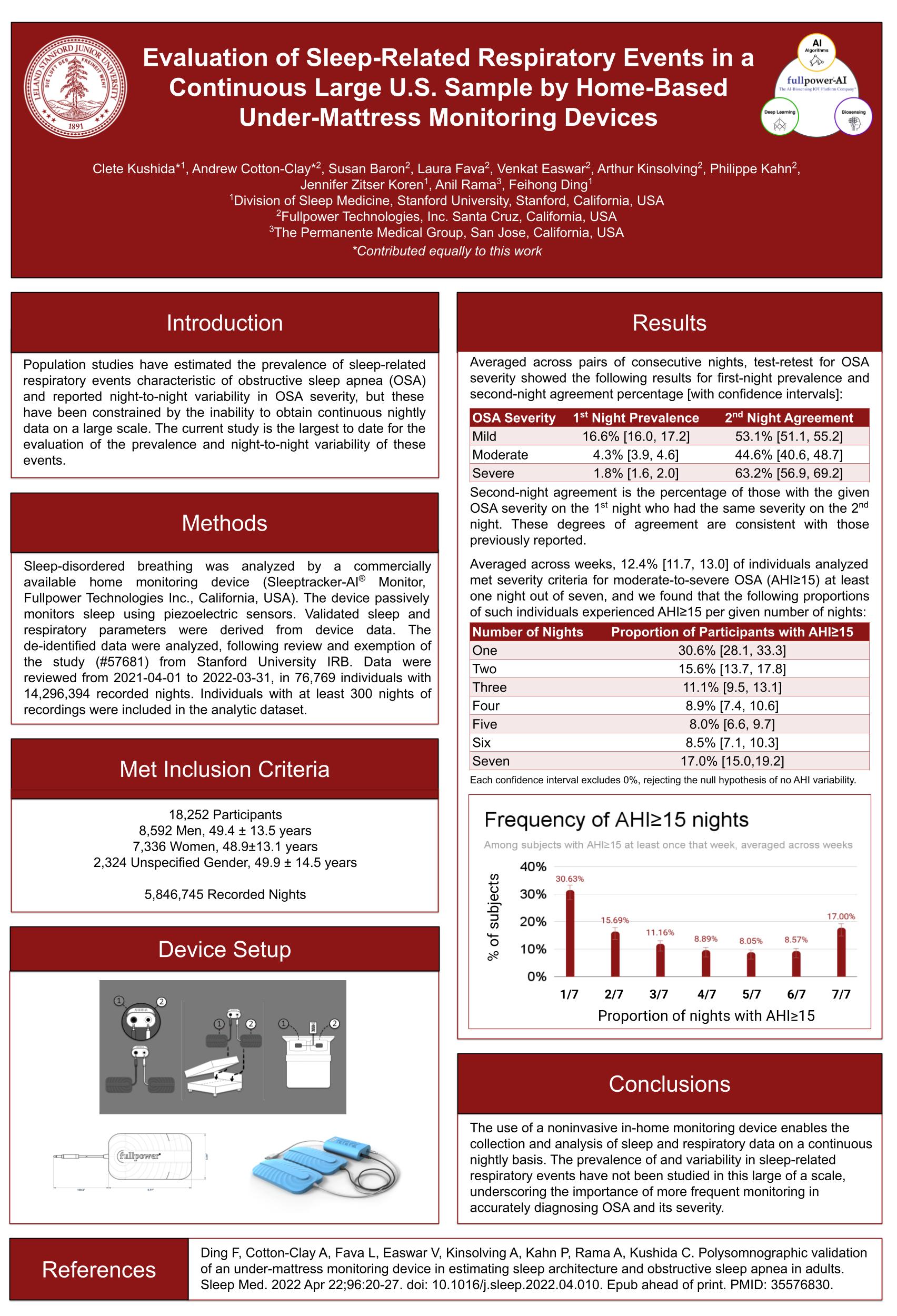
In an extensive longer-term study, the data shows that more than 14% show moderate to severe apnea (AHI>15) as presented at the Athens Greece sleep conference, September 2022.
This is the first known large-scale continuous Sleep Apnea study. Sleep Apnea is a potentially serious sleep disorder. It causes breathing to stop and repeatedly start during sleep. Studies have found a direct correlation between High Blood Pressure, Diabetes, Stroke, heart attack, and Apnea. In a large study of over 75,000+ sleepers, over 14 million nights of sleep. The data shows that more than 14% experienced serious sleep apnea at least one night a week. There are effective therapies for apnea. The diagnosis must come first. There are several types of sleep apnea, but the most common is obstructive sleep apnea. This type of apnea occurs when your throat muscles intermittently relax and block your airway during sleep. A noticeable sign of obstructive sleep apnea is snoring. Population studies have estimated the prevalence of sleep-related respiratory events characteristic of obstructive sleep apnea (OSA) and reported night-to-night variability in OSA severity. Still, these have been constrained by the inability to obtain continuous nightly data on a large scale. The current study is the largest to date for evaluating these events’ prevalence and night-to-night variability. The de-identified data from 2021-04-01 to 2022-03-31, in 76,769 individuals with 14,296,394 recorded nights. Individuals with at least 300 nights of recordings were included in the analytic dataset.